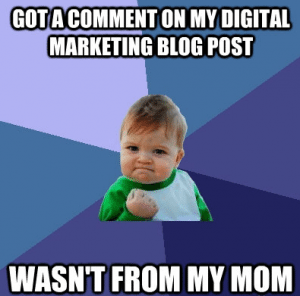 I love cruising the web for weird and wild news from time to time. It is funny to read some of the stuff that people will actually post for all to enjoy. On that note I happened across a post from blogger Josephine Jones who wrote in October on a lawsuit that Automattic – the makers of WordPress – is facing. I have to give JJ props as it was her headline that snagged my attention – Colon quacks sue WordPress.
I love cruising the web for weird and wild news from time to time. It is funny to read some of the stuff that people will actually post for all to enjoy. On that note I happened across a post from blogger Josephine Jones who wrote in October on a lawsuit that Automattic – the makers of WordPress – is facing. I have to give JJ props as it was her headline that snagged my attention – Colon quacks sue WordPress.
You can probably imagine where my mind wandered first… How is a grammatical construct being used in a lawsuit? I should have known better. The basics surrounding the actual issue are this: a Romanian blogger spoke out against the manufacturer of a line of colon cleansing products. The makers got a bee in their bonnet and decided to go after the blogger. To do so they petitioned WordPress to remove the blogger’s site. After WordPress and its parent Automattic refused the corporation decided to sue them in order to get their hands on the blogger’s personal info as everything had been posted anonymously.
Feel free to click on the links to Josephine’s site to read more specifics. Suffice to say this raises serious legal questions for bloggers and the platform alike. The most important question is should a platform such as WordPress or Joomla be help legally liable for content posted using their software? This could hold serious ramifications for those of us in the blogosphere. IF the judge sides with the manufacturer in this case and forces WordPress/Automattic to give up the blogger’s info it will set a dangerous precedent.
Currently, those of us who use WordPress know that it is not exactly a stickler for collecting correct personal information. It is easy enough when setting up your blog to use a pen name and secondary email so that others cannot track you back to the blog you have created. In fact, this could indeed be the case with the Romanian blogger who is known to act anonymously anyway. If the courts decide that Automattic is indeed responsible for collecting this sort of info then the company could begin having to verify the identities of those building a site using the WordPress platform.
This could take a huge chunk of the anonymity that the web offers out of the hands of bloggers and could place the power into the hands of those that such blogs have traditionally targeted. What does this mean? Simply put it means that bloggers will have to be even MORE careful about what they say, how they say it, and even WHERE they say it. One of the benefits of the internet has always been the fact that it allows the little man to speak his mind in regards to companies, governments, special interest groups and more. If this court sides with the manufacturer of the colon cleansing products it will set precedent for other courts that may face a similar decision.
Enough about my opinion on the dangers that this case poses. What do YOU think could be a dangerous aspect considering the potential outcomes of this case?
